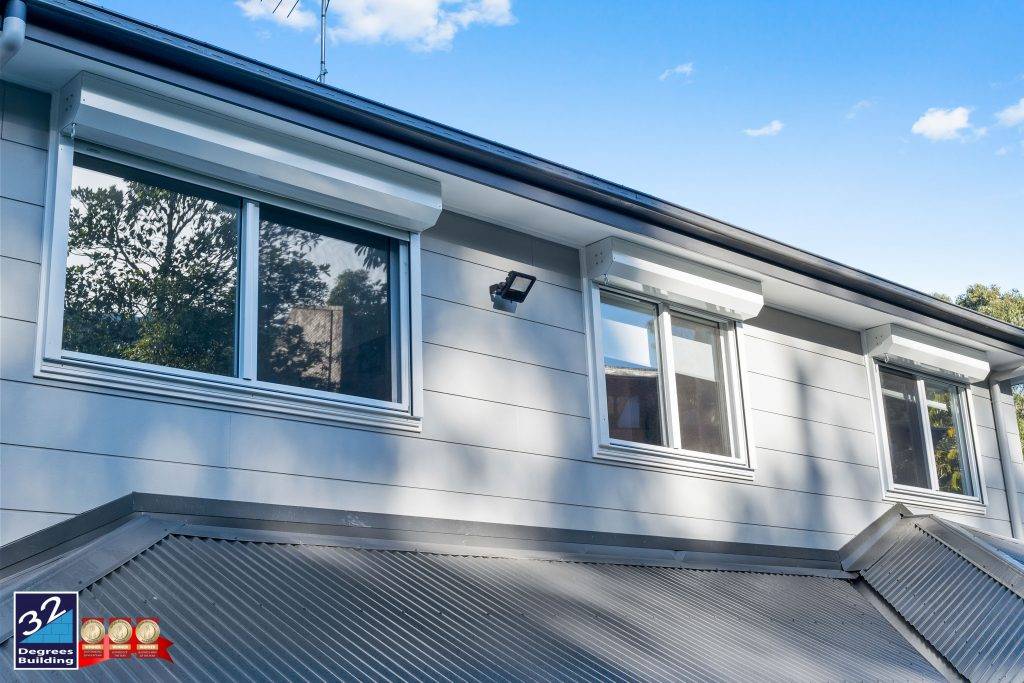How to save money building a First Floor Addition vs a Ground Floor Extension
Should You Build Up or Out? Cost Tips
We often have clients that approach us looking to add more room to their home.
A common question we are asked is ‘Should I build an extension or an addition?‘
We look at the benefits of building an Addition vs an Extension below.
What’s the difference between an Extension and an Addition?
Extension
In the building industry, the term ‘extension’ refers to extending an existing building; to extend its overall floor size. Basically, it means to add another room or make a room larger whilst remaining at the ground level. To add an extension to your home, you will need to sacrifice some of your backyard or front yard to accommodate the extra room.
Addition
Similar to an extension, an addition can add more living space to your home. However, with an addition (also known as a second storey addition/first floor addition), you do not need to give up any of your yard space as an ‘addition’ goes up and not out like an extension is required to do. In other words, when you have an addition done to your home, you will gain another floor level. Adding height rather than length.
The cost benefits of building an Addition vs an Extension
- You can keep living in your home whilst an addition is being built, this saves you the costs related to finding short term accommodation and relocating your family and your possessions.
- You do not have to worry about soil removal. When building an extension, excavation and site preparation costs can be high. Not only do you have to prepare the site to be built on, you often need to remove any excess soil and other materials to make way for the extension.
- An addition can add significant value to your home. How much value can vary greatly depending on what you plan to add to your home. Regardless, a first floor addition is said to add between 30 to 60% to the value of your home.
- If you add extra bedrooms and bathrooms to your home, you can expect a significant return on your investment. This increase in house value is often in line with the difference in house prices from going from a three-bedroom home to a five-bedroom home.
- Choosing to build a First Floor Addition to your home rather than a Ground Floor Extension will also result in you being able to retain more yard space and this will also further add to the selling power of your property.
Regardless of your decision, our team can assist you with an Addition or Extension to your home. Contact us to discuss how we can add more room to your home.

What to look for when choosing your builder
How to Choose the Right Builder
You’re in the market for a renovation or addition on your home, but where can you find a builder that is reliable, will minimise the disruption to your family and deliver maximum quality on your investment that will stand the test of time?
You may have been referred to builders by people you trust, however, that doesn’t necessarily mean that the builder will be trustworthy. So who do you contact, and what should you look out for when contemplating taking the first steps on your building journey? We’ve put together a list of things you should consider when making your decision to select a builder in this choose your builder guide:
1. Do they specialise in your type of build?
You might assume this is obvious; however, it’s vital to ensure that the builder you choose is well-established and reputable. Search for a builder who has experience in the type and style of build you are looking for, and see if they are able to provide references for a number of jobs they have completed.
Always do your research – look at their website, social media pages and online presence. Are their projects active and up to date? Can you see samples of their work? How long have they been operating for?
2. Do they belong to a builder’s association?
Builders that have a professional membership in the industry e.g. Housing Industry Association (HIA) and Master Builders Association (MBA) participate in continuing education and stay up to date with best practices, new technology and innovations within the field. This ultimately means that these builders will use the newest and correct practices when constructing your home.
3. Are they licensed and insured?
A good indicator of a high-quality builder is one that’s fully licensed and
insured – and that they can provide you with those details upon request. It’s vital for you and your builder to be protected and insured in the event
that something goes wrong.
Examples of insurance that may be required by the builder are;
- Public Liability Insurance
- Workers Compensation Insurance
- Contract of Works Insurance and;
- Home Warranty Insurance (for all builds over $20K)
You can do a licence check of your builder through the Fair-Trading website, however, we also recommend that you request a copy of their insurances before engaging with them to ensure your family and your investment are protected.
4. Are they able to provide client testimonials or reviews?
The sign of a reputable and successful builder is one that is able to provide a list of client references from the past, most recent and from those currently going through the building process with them. This is a good indication that they have been delivering high-quality service to their clients consistently throughout their years in business.
5. Is there clear communication from the beginning?
Good builders are responsive right from the beginning of your interaction with them. This shows that they invest in their team to ensure that customers and their experience is at the forefront of their business. A builder and their team should be available to communicate with you throughout the project, even after practical completion. Clear communication builds trust and transparency, which are two crucial factors this choose your builder guide strongly emphasises.
6. The cheapest quote may not result in a quality build
Be wary of going with the cheapest estimate a builder may put in front of you. When searching for a builder, ensure you are making as direct a comparison as possible. It is always important to compare apples for apples; a higher quoted price may result in less unforeseen costs and expenses. By choosing a significantly cheaper quote, be aware that you can run the risk of finding out halfway through your build that you have been underquoted, and the builder is unable to fulfil your project, leaving you stranded and stressed, putting a strain on the family and your investment.
7. Do they offer fixed priced contracts?
Beware of quotations and contracts with a long list of ‘estimates’ and ‘TBA’s’. To avoid a blow-out in costs which could end up exceeding your budget or not being to afford to complete your build, ask for a fixed price contract.
There will be items that a builder cannot foresee such as soil removal, asbestos removal and termite damage, however, the builder should be upfront and discuss these items with you during the planning process. This allows you to properly plan and have a contingency plan in place.
8. How does the builder operate?
Does the builder utilise sub-contractors to complete your build, or do they employ their own team? A benefit of choosing a builder that employs their own tradespeople to complete your build is that they invest in the proper training and management of their team. This also means that they have greater control of the quality and the speed of the build as they will be coordinating the trades across their builds. By limiting the number of sub-contractors being used, your builder can ensure that you know who is working at your home, giving you peace of mind that your family is safe and secure and that disruption is kept to a minimal.
At 32 Degrees Building, we specialise in additions, extensions and renovations. We believe in putting the clients first and have a support team there for you during your build to address any of your concerns throughout the process. We are licensed, fully insured and are more than happy to provide you with references from our clients, past, recent and in progress if you would like to discuss their building experience.
If you have any questions surrounding your future renovation or addition on your home, call the team. We are available to talk to you and run through all of the details with you.
See more:

